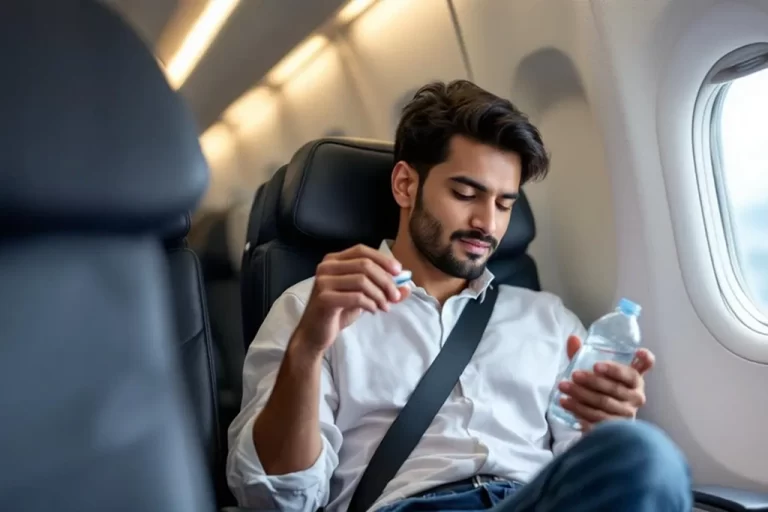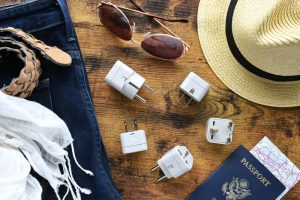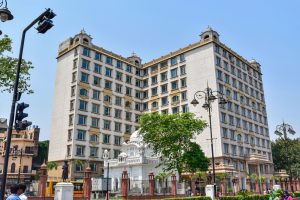Inshorts
Airlines offer special assistance for passengers with medical conditions, mobility issues, or oxygen needs on New Zealand to India flights. This includes services tailored for senior travel NZ to India, ensuring comfort and support for older passengers.
Always share medical details early—ideally 48–72 hours before departure—to ensure smooth processing of your travel plans.
Fit-to-fly certificates are required for recent surgeries, contagious illnesses, or oxygen dependency.
Passengers should book medical equipment or special assistance in advance, as some services must be booked early to ensure availability.
Portable oxygen concentrators (POCs) are allowed on most flights, subject to airline approval. POCs and other medical devices may require medical clearance and should be booked in advance.
Cabin crew can assist with mobility and special seating, but not personal medication or feeding. Some services require medical clearance before they can be booked.
Medical paperwork should match your travel dates and route.
Special Assistance or Medical Clearance and International Travel
Traveling between New Zealand and India involves international travel that can be long and tiring, especially for air travelers who need special assistance or medical clearance. Flights from Auckland to Delhi are a key part of this route, often involving long haul flights. Passengers should inform the airline of their intended travel and intended travel date to ensure proper arrangements and support are in place.
Whether you’re a senior returning home, a student recovering from surgery, or a family member managing chronic illness, most airlines have clear policies to make flying safe and comfortable. This includes disability assistance flights to ensure all passengers receive proper care in compliance with non-discrimination policies. Official documents and information can be provided in an accessible format upon request. Mobility assistance and access to airport facilities are available for those who need them.
When to Request Special Assistance?
Request special assistance as early as possible—ideally at the time of booking. This helps the airline coordinate wheelchair support, seat preferences, extra legroom, or mobility devices. Mobility assistance is also available for passengers who require help accessing airport facilities or moving through the terminal. You can request this by contacting customer service or filling out a “special assistance” form on the airline’s website.
Common reasons for requests include:
Limited mobility or wheelchair needs.
Hearing or visual impairment.
Medical devices or oxygen dependency.
Pregnancy beyond 28 weeks.
Emotional or cognitive conditions requiring support.
Use of artificial limbs or other medical aids.
Need for access to special equipment or facilities due to a disability.
Fit-to-Fly Certificates: When You Need One
Certain medical conditions require medical clearance before travel. For travelers requiring medical clearance, the airline’s medical team may ask for a fit to fly certificate from a doctor, confirming the passenger is stable to fly. You must also complete a Medical Information Form (MEDA), with Part 1 filled by you or your agent and Part 2 by your doctor. Submit the form 3-14 days before your flight via e mail to the airline’s medical team.
Please note: You usually need a certificate if you:
Had surgery within the last two weeks.
Are traveling after hospitalization.
Have heart, lung, or neurological conditions.
Require medical oxygen during the flight.
Suffer from a contagious illness.
This certificate should include:
Your name and medical condition.
Details of fitness to fly.
Permission for use of oxygen (if applicable).
Doctor’s signature and contact details.
Tip: Carry two copies—one for check-in and one for your hand baggage.
Oxygen and Medical Devices on International Flights
Passengers may bring their own medical equipment, such as an oxygen concentrator, on international flights, including New Zealand to India flights, subject to approval. All medical equipment and devices must be approved for use on the aircraft and must meet the following requirements for safety and compatibility. Only approved medical equipment can be carried and used on board during the flight. Passengers requiring medical clearance for certain medical conditions or the use of specific devices must inform the airline well in advance as part of their travel plans.
Most carriers allow Portable Oxygen Concentrators (POCs) that are FAA-approved. It is essential to follow specific guidelines to ensure a smooth travel experience:
Use devices with rechargeable lithium batteries that last 150% of the total flight duration (including layovers and time zones). Lithium batteries used in medical devices must comply with airline regulations regarding capacity and carriage.
Carry a doctor’s note confirming oxygen usage rate (flow rate) and need.
Never depend on cabin crew-supplied cylinders unless pre-approved.
The standard supply for passengers requiring oxygen on Air New Zealand flights is 2L/min via nasal prongs.
Oxygen gas cylinders cannot exceed 5 kilograms, and the valves and regulator must be protected from damage.
Submit the MEDA form at least 72 hours before travel if supplementary oxygen is needed.
Air New Zealand may require you to travel on a flight where oxygen can be supplied if your requested oxygen cannot be fulfilled.
CPAP machines for sleep apnea are usually permitted; however, check power compatibility or battery options before flying. Some devices may require connection to aircraft power, but approval is needed and not all aircraft provide this option.
Medical power outlets may not be available on all flights, so battery-powered devices are recommended.
If a device is unable to fit under the seat or meet airline restrictions, it cannot be used on board, though it may still be carried.
Traveling with Medication
Medication planning is crucial for long-haul routes. Follow these steps for travelling with medication:
Ensure your travel insurance covers medical emergencies and any pre-existing conditions to ensure valid coverage during air travel.
Pack medicines in original packaging with labels.
Keep prescriptions or medical letters in your carry on baggage.
Carry enough supply for the trip and a few extra days.
Bring a simple doctor’s note from a medical practitioner for injectable medicines (like insulin). Carrying syringes and needles, as well as EpiPens, can be done without restrictions, but a prescription may be required for needles. Used syringes and needles should be handed to cabin crew for safe disposal.
Ensure your liquids or syringes comply with security screening rules. Declare them at the security checkpoint if needed.
Please be aware that some medications or devices may be classified as dangerous goods, so always check airline and security regulations before packing.
Assistance at the Airport
Most airports in Auckland, Christchurch, Delhi, and Mumbai provide wheelchair-friendly services, lifts, and priority boarding. Mobility assistance and accessible services are available at both international and domestic terminals. Request help with check-in, immigration, and boarding assistance in advance. The airline team can arrange:
Wheelchair-to-seat support.
Escort through security and customs.
Priority boarding and deplaning.
Auckland Airport participates in the Hidden Disabilities Sunflower Lanyard scheme, allowing passengers with hidden disabilities to wear the lanyard for extra assistance. To get one, contact Auckland Airport at least 72 hours before your intended travel date and specify your assistance needs. Airport staff recognize the lanyard and provide support accordingly.
Cabin crew can assist with luggage and movement inside the cabin but cannot administer medication or help with feeding.
For safety reasons, passengers with artificial limbs or medical devices may trigger security alarms. Inform security staff beforehand to avoid delays.
If denied boarding due to medical reasons or equipment, contact the airline’s customer service or the aviation consumer protection division for help.
Inform airline and airport staff in advance if you need assistance accessing areas or equipment during your journey, including domestic flights on connecting routes. If you require access to special equipment or facilities, especially when traveling through the domestic terminal, request this support ahead of your intended travel date to ensure availability.
FAQs
Do I need to pay extra for special assistance?
No, wheelchair and basic medical assistance are free if requested in advance.
How early should I apply for medical clearance?
Please note: Apply at least 48–72 hours before departure, especially if using a POC or post-surgery clearance.
Can I bring my own oxygen cylinder?
Only if it meets airline safety standards and you have written approval before check-in. Oxygen cylinders must be booked in advance, and requirements may vary depending on your destination.
Is travel insurance mandatory for such cases?
Not mandatory but highly recommended for medical and flight-related emergencies.
Can someone accompany a passenger needing medical support?
Yes, passengers needing continuous help should travel with a companion familiar with their care. Some situations require medical clearance for both the passenger and the companion.





